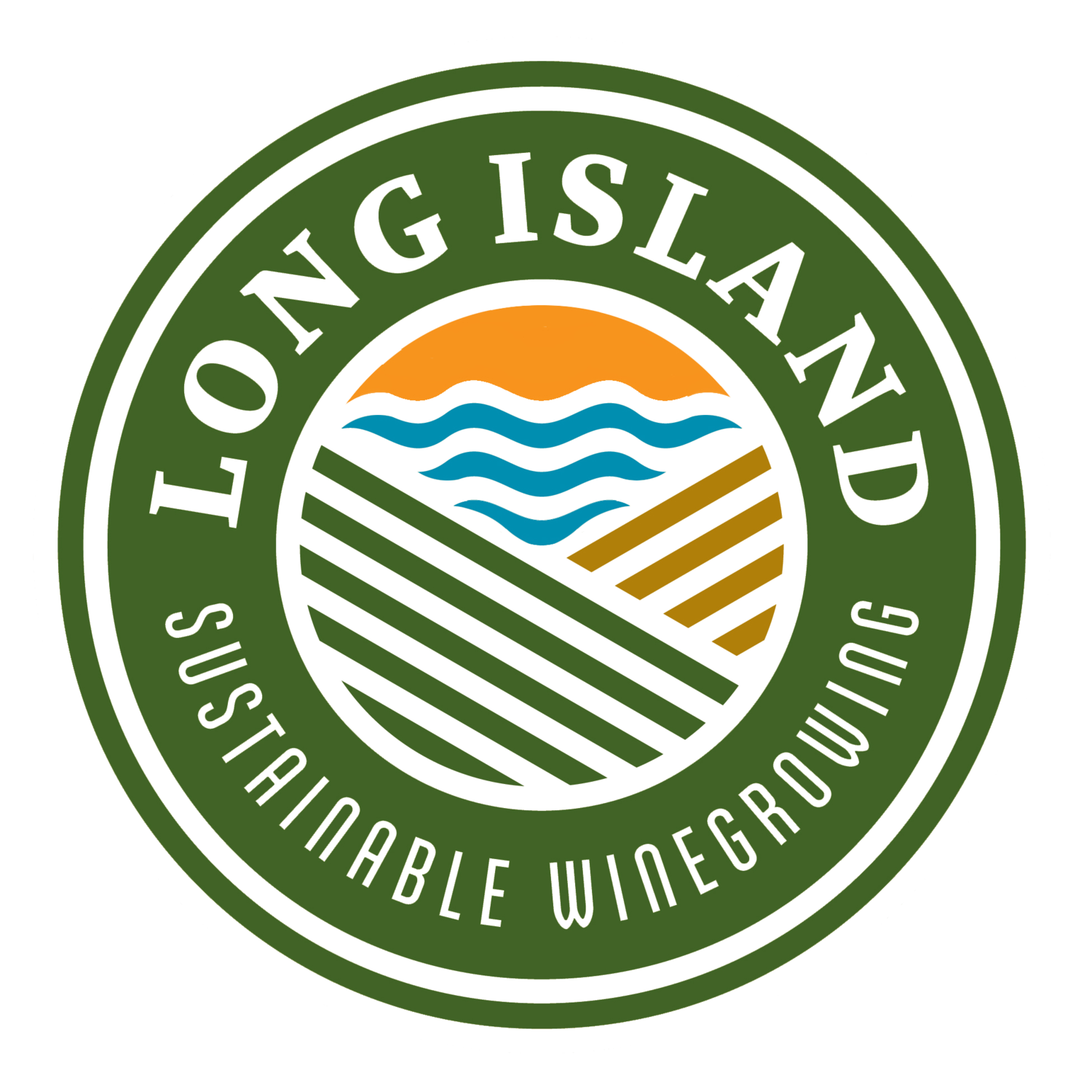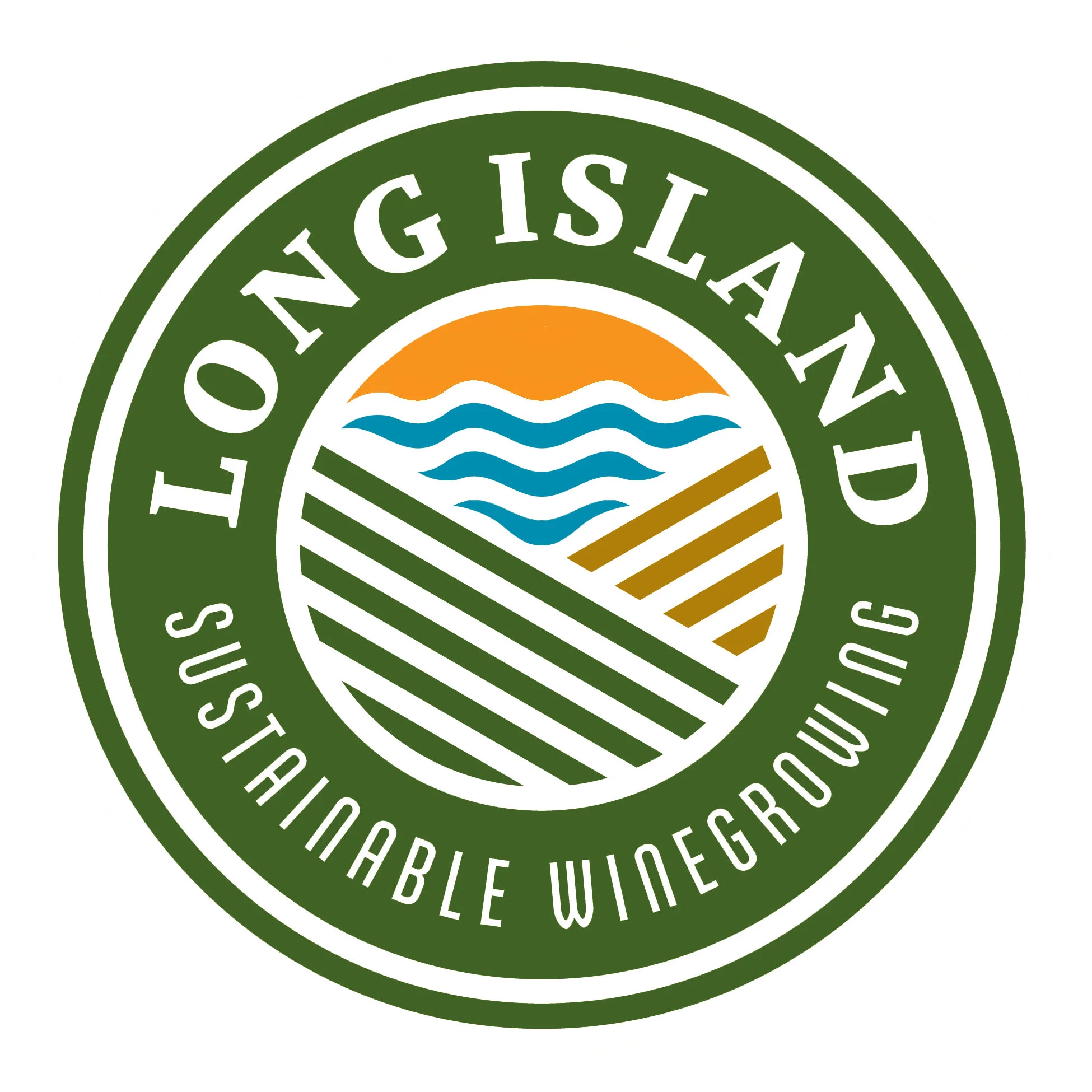The Long Island Sustainable Winegrowing Movers & Makers Interview Series is a celebration of the individuals behind the sustainable wine movement on Long Island. These winemakers and grape growers are on the forefront of reducing environmental impact while investing in the future of Long Island wine. Each featured vineyard is LISW Certified, and each Sustainability Leader has a unique strategy for continuous improvement beyond certification. The fruits of their labor include reduced carbon emissions, healthy soil, delicious wine, and so much more!
Interview with Rich Pisacano, Roanoke Vineyards
Rich Pisacano will be the first person to tell you that the secret to making a 95-point wine is to stay agile and keep your mind open. Pisacano originally approached his relationship with Long Island vineyards from a technically proven approach, but quickly recognized there was significantly more to the equation. If there is a champion “terroirist” here, it is Rich. It has been nearly 40 years since Rich first set foot in a North Fork vineyard, and his experience with the land has built a steady arc of quality ever since.
Balancing the Wölffer Estate vineyard in Sagaponack with Roanoke Vineyards in Riverhead (his own farm planted in 2000), requires embracing the idea that the vineyard sets the year’s rhythm. There are few days off, certainly none during the growing season, but the work proves its own reward once the cork is pulled.
Rich will tell you that sustainability is a starting point, a given, or an obligation. From there, you are in striking distance of greatness.
LISW: What inspired you to be a part of the sustainable wine movement on Long Island?
RP: There wasn't an "ah ha" moment that inspired me but rather an accumulation of experiences. The paradigm shift began in the early 80's when I planted my first vineyard and the next day planted the few remaining vines on a fence along some woods where I lived. The next few years taught me that the mostly untended vines on the fence thrived quite well and, in some ways, better than the vines I pampered in the vineyard. The lesson was that the woods offered invisible life and balance that was less available in the open field. Over time, the goal then became to introduce as much of the wild as possible into the vineyard. After all, the wild is where the vines originated. As the years went on, I became aware of how the soil felt under my feet and the message it sent back. I was paying more attention on the health of not just the vineyard but the undergrowth, the weeds, the neighboring fields, and all the surroundings. I learned about thresholds to pests, and disease, and not to panic from their presence. When LISW was formed, I saw it as a way to challenge what I was already practicing. The forming of the LISW was a brilliant undertaking. The formality of maintaining certification is a bit difficult, but the spirit of it, and participating in it, is highly inspiring and important.
LISW: What sustainability practices do you apply in your vineyard/winery?
RP: The main sustainable practices I implement at Roanoke Vineyards is to have eliminated the use of herbicides and replaced weed control with the use of weed reducing machinery combined with actually pulling them by hand. We've reduced materials we use to fight off disease and insects down to almost entirely organic and reduced risk choices. We've abandoned any materials or fertilizers that have been suspected of negative effects to the environment, the groundwater or most importantly, the workers. We avoid doing tasks by machine that can be done by hand. Our focus on the health and happiness of the workers is hugely important and rewarding. No farm is successful unless its workers are offered success. The better choices we practice in the vineyard and goodwill we offer those who work in it, the more our vineyard has given back.
LISW: What are some of the benefits you see from sustainable winegrowing?
RP: All our practices have proven to expose and accentuate our unique terroir at Roanoke Vineyards. In order to unleash terroir, you first have to identify it and believe in it. I was a skeptic for years about terroir, but once found, it has become intoxicating (pun intended). It's elusive and difficult to harness, but the gentler you are in the vineyard, and with the grapes, and the more you trust your intuition as to your decisions intended to present terroir, the more it will take hold and be expressed in your wines. Fortunately, for Roanoke Vineyards, the flavor of place is worth all the effort. Achieving this while following the requirements of the LISW program has helped in so many ways.
LISW: What sustainability trends or technologies are you excited for in the future of Long Island wine?
RP: I am most excited about the continued development of naturally derived fungicides and other natural material we are using that are effective against fighting harmful funguses. It wasn't that long ago when these materials were not taken seriously but are now of super importance to me.
To learn more about Rich Pisacano and Roanoke Vineyards visit: https://www.roanokevineyards.net/




